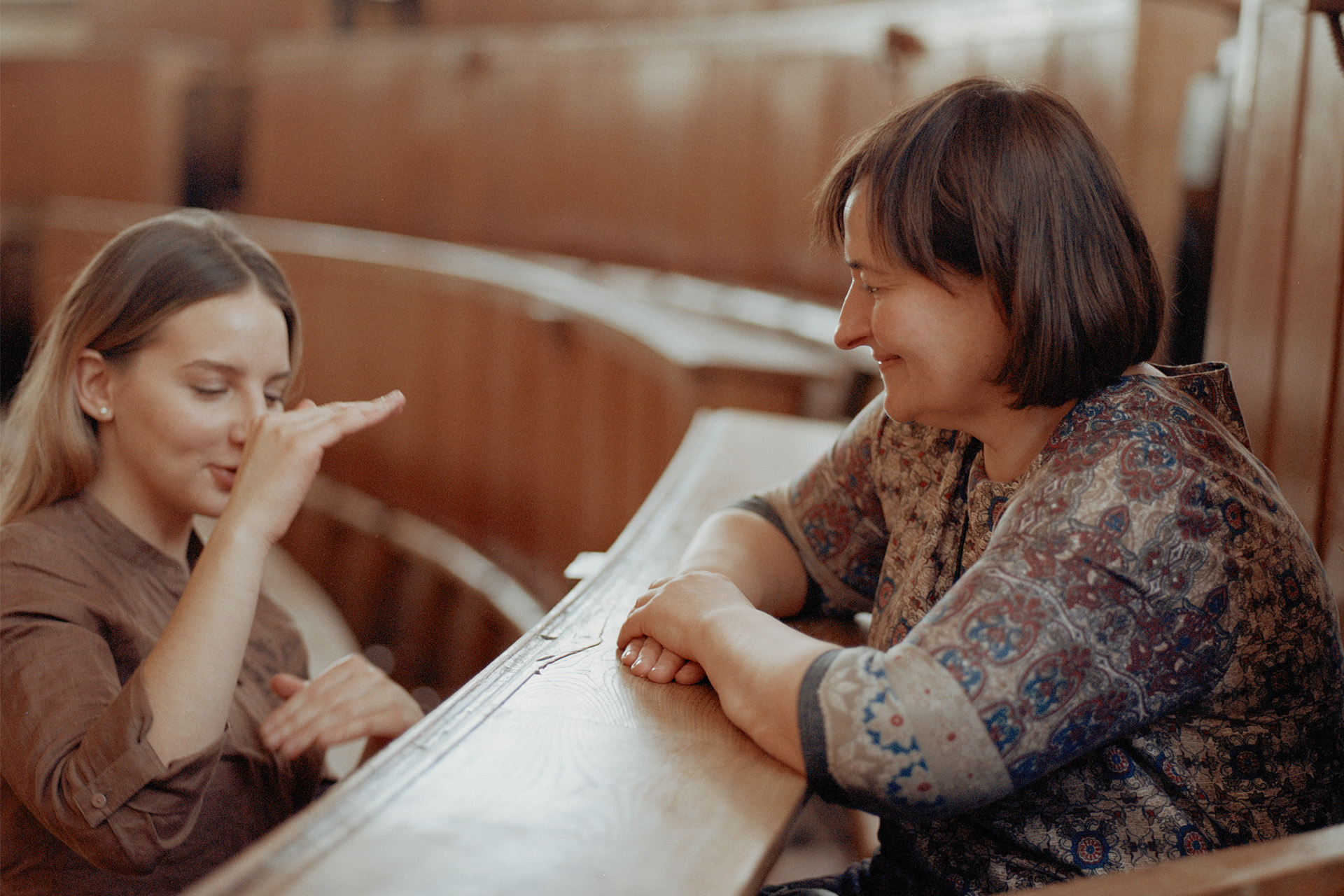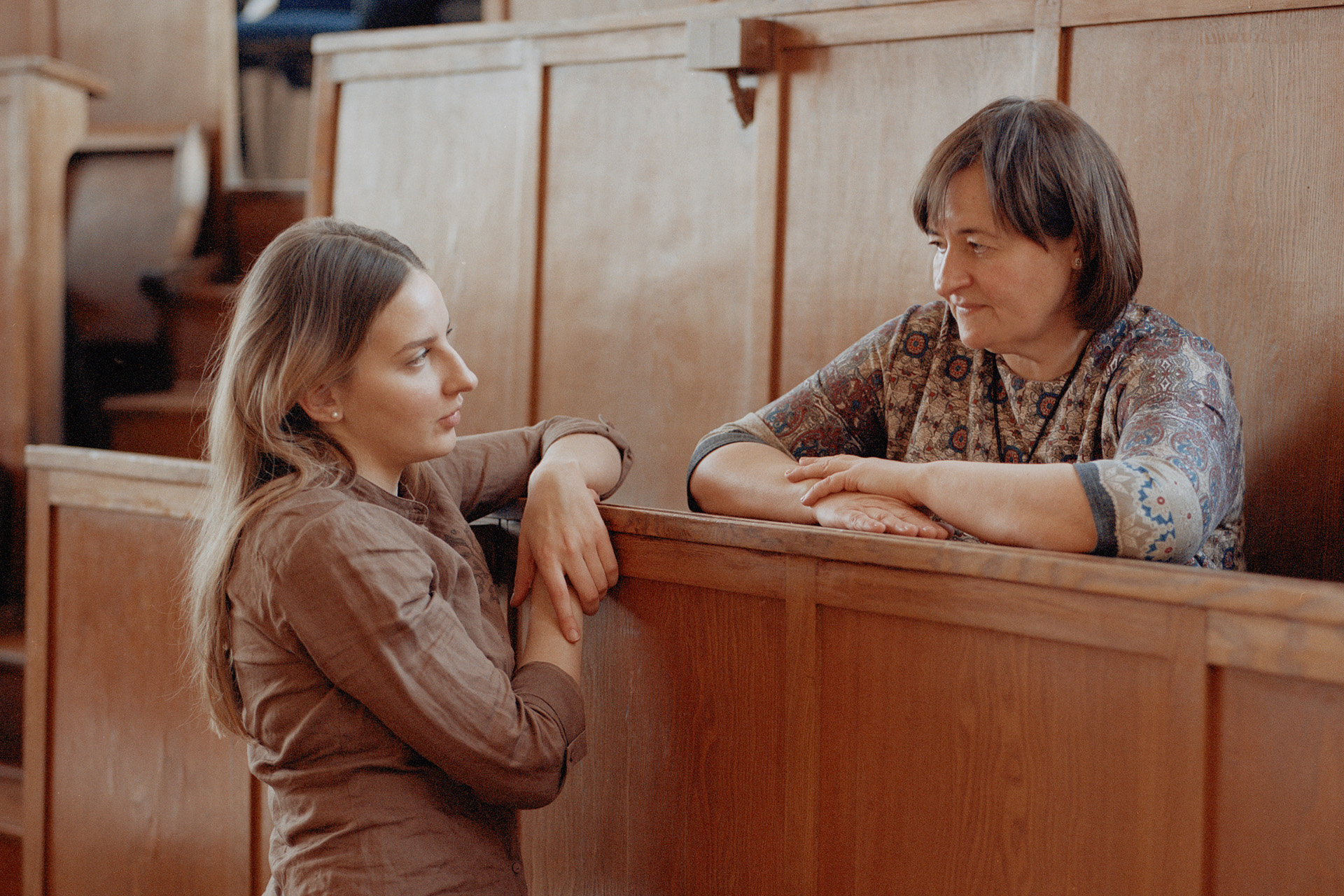Inspired by the Example of Her Lecturer, the Student Chose to Continue Her Studies by Training in Obstetrics and Gynaecology
 What is the most important thing when it comes to building a relationship between a teacher and a student? What does it take? What should the relationship be like? Prof. Diana Ramašauskaitė, Head of the Obstetrics and Gynaecology Centre of the Vilnius University (VU) Santara Clinics, and Elena Paškevičiūtė, a resident obstetrician, shared their thoughts.
What is the most important thing when it comes to building a relationship between a teacher and a student? What does it take? What should the relationship be like? Prof. Diana Ramašauskaitė, Head of the Obstetrics and Gynaecology Centre of the Vilnius University (VU) Santara Clinics, and Elena Paškevičiūtė, a resident obstetrician, shared their thoughts.
The resident obstetrician gynaecologist, E. Paškevičiūtė, remembers hearing her lecturers say: “From now on, everything depends on you, the students. Your outcome will depend on how much effort you put into studying.” She did not agree with this sentiment. According to E. Paškevičiūtė, without a good relationship with the student, even if a teacher tries to show them the proper way of studying, it is not always possible to achieve a good outcome: “University is exactly the same. A lecturer is not only a source of knowledge, but also like a vector determining their further independent scientific work.”
Even before joining the medical degree programme, E. Paškevičiūtė was interested in obstetrics and gynaecology, but had no idea how broad this field was. That’s why the student says she was lucky to meet Prof. D. Ramašauskaitė halfway through her studies: “I remember that during the first seminar on the midwifery cycle, my group was I talking about our lecturer and how much we liked her. Medical students often feel confused by the large amount of information provided during their studies and the many different topics they need to learn. However, this lecturer created a learning environment based on mutual respect, peace, and the freedom to ask questions and make mistakes.”
Later, encouraged by Prof. D. Ramašauskaitė, E. Paškevičiūtė became involved in her scientific activities that have continued to this day. Inspired by the example of the lecturer, she decided to continue her studies with a residency in obstetrics and gynaecology. The resident doctor stated that during their several years of cooperation, she had the opportunity to get to know the professor not only as an academic, but also as Head of the Obstetrics Centre, and was impressed by her dedication to this profession.
“Over the time we worked together, she has encouraged me as well as criticised me. However, the criticism was always constructive and never made me feel afraid of making a mistake. Instead, it motivated me to keep improving,” said the resident doctor, adding that many lecturers tend to forget that teaching is not just about scientific facts. Much of this process is also directly related to the interpersonal relationship with the student. In particular, a lecturer should inspire students. It’s this connection and the authority of the lecturer that lays a solid foundation for meaningful and nurturing collaborations.
Prof. D Ramašauskaitė was the winner of the award for the best lecturer in the Faculty of Medicine in 2021, which testifies to the attention she pays to her students. When asked what is most important in building the relationship between a teacher and a student, and what it takes to maintain it, the professor explained it needed mutual openness and time: “Saying a couple of words to each other while rushing down a corridor is not enough. If you can’t make time at that moment, you need to communicate clearly and agree on another time to meet. It’s very important to make sure that the student is not pushed aside, although those of us who teach clinical disciplines are always faced with that risk.”

According to the professor, maintaining an effective relationship is not always easy. Given that the work of obstetricians is particularly dynamic, the daily activities are carefully planned but can still change at any minute. Looking for solutions to unpleasant circumstances requires creativity.
As the professor explained, successful collaborations between a teacher and a student are based on a sense of equality, not a supervisor-subordinate relationship. “These years are the stage of life when young people are the most motivated. The days when the choice of a profession was decided according to the wishes of one’s parents are now gone. Even if a student doesn’t know which path to take after graduation, they can take a year off to reflect and make that decision. Therefore, I believe that lecturers shouldn’t babysit their students. Instead, their relationship should be based on cooperation. This is especially true considering that nothing is standing still, and times are changing quickly. You can’t just stay at the same level you reached 20 years ago. Modern students are very inclined to give feedback and share their positive and negative experiences – and that’s a very good thing,” Prof. D. Ramašauskaitė said.
However, the lecturer revealed that she did not expect all the medical students attending her lectures to become excellent obstetricians and gynaecologists. Perhaps only a few of them anticipated working in this field. However, it is important to ensure that every potential doctor knows the most important aspects of the subject she teaches. Furthermore, they need to acquire general competencies, which means learning to find and properly interpret and analyse the information they are given, and to work as a part of a team. In other words, in addition to the so-called speciality knowledge, they also need to develop human qualities.
Is the attention given to potential doctors more important than that given to those studying other subjects? The professor responded that she did not think that medical studies were anything special, while lecturers should give the same attention to all their students. However, those who are especially interested in a particular field should be encouraged to take part in scientific activities and motivated to explore that field on a deeper level, to look for growth opportunities.
According to Prof. D. Ramašauskaitė, interest in a particular subject often comes from the opportunity to explore it first-hand. She remembers falling in love with each new medical field she encountered as a student: when she studied surgery, she was fascinated with that field. The same was true for endocrinology, and so on. Back then, she considered becoming an infectologist (the recently discovered immunodeficiency virus piqued her interest); however, her plans changed after a residency in the district obstetrics and gynaecology department, where the professor’s mother also worked as an obstetrician gynaecologist.
During the residency, students have the opportunity to learn about the profession and even help women give birth. The professor said she was on cloud nine after her own experience, and it was then that she began thinking about becoming an obstetrician gynaecologist. She said: “I am very happy about my decision to this day. I have never thought that I don’t belong here. Obstetrics gynaecology is a dynamic job that involves a lot of positive emotions. A new life arriving into the world, with a happy mother, father, family and relatives. All this really adds to the positive feelings.”
Prof. D. Ramašauskaitė also cited the excellent microclimate in her workplace and the joy of cooperation as inspiring and motivating factors. She admitted that when she takes time off work, she misses her colleagues, particularly with regard to working together and discussing difficult cases. According to the professor, she is also motivated by the fact that others appreciate her efforts and her work.
In recognition of the importance of developing a teacher-student relationship and having the courage to ask questions, VU is presenting an art project and a virtual exhibition, in collaboration with the documentary and portrait photographer Tadas Kazakevičius. The exhibition features a series of portraits of Prof. D. Ramašauskaitė and the resident E. Paškevičiūtė, revealing the sincere relationship between a teacher and her student and the importance of communication.